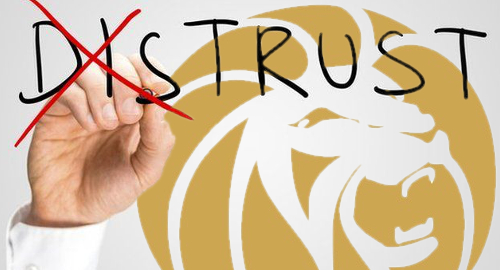 Casino operators looking to launch Connecticut’s third land-based gaming venue made their pitches to state legislators on Monday, but it’s unclear whether any of the competing plans will get the nod.
Casino operators looking to launch Connecticut’s third land-based gaming venue made their pitches to state legislators on Monday, but it’s unclear whether any of the competing plans will get the nod.
On Monday, the Connecticut state legislature’s Finance, Revenue and Bonding Committee heard testimony from the two tribal casino operators looking to partner on a joint venture off-reservation casino, as well as MGM Resorts’ pitch to be allowed to open a commercial casino in the state.
The Mashantucket Pequot and Mohegan tribes are pitching a casino in East Windsor near the border with Massachusetts, with the express purpose of heading off state gamblers who might otherwise travel across that border to the $950m MGM Springfield property, which is scheduled to open its doors next year.
MGM objected to the state automatically awarding the tribes the third casino prize without opening up the process to a public tender. The state is already mulling two competing pieces of legislation; one that would formalize the tribes’ third casino plans, while the other would force the tribe to compete with commercial casino operators for the right to the third casino license.
The Finance committee has its own bill that supports the public tender option. It would also require the successful bidder to spend at least $500m building its facility, which is $200m more than the tribes planned to spend on their East Windsor venue. The bill would tax casino revenue at 35%.
On Monday, MGM senior VP Uri Clinton told the Committee that his company was extremely interested in building a casino in southwestern Connecticut, preferably near Bridgeport, close to the border with New York state. MGM’s call for a “fair and transparent” bid process was echoed by the Schaghticoke Tribal Nation, which has pressed legislators for the right to launch its own casino operations.
Some Committee members expressed skepticism that MGM’s interest was intended to do anything but scuttle the tribes’ off-reservation plans. Rep. Chris Davis refrained from directly comparing Clinton to Leave It To Beaver‘s paragon of insincerity Eddie Haskell, but pointed out that even if a casino tender was launched, “under no circumstances is there a requirement for MGM to actually move forward with any proposal.”
Clinton rejected this argument, saying MGM’s interest was not a “delaying tactic.” Clinton argued that MGM had made no greater effort to promote an open casino tender than the two tribes had made in opposition.
On that note, the tribes released a report on Monday that cast doubt on a commercial casino’s ability to generate more revenue for the state than would be earned by maintaining the state’s existing 25% share of the two tribal casinos’ slots revenue – which could the tribes could withhold if a commercial casino is approved – as well as the tribes’ promise to kick back 25% of all gaming revenue from the off-reservation casino. The report claims the state would miss out on $86m in annual revenue if it goes the commercial casino route.
The report’s author, gaming consultant Clyde Barrow, warned legislators that New York City was likely to authorize its own casino within the next few years, which would eliminate the drawing power of any Connecticut border casino. Barrow suggested MGM’s proposed casino would “end up as the Trump Taj Mahal of Connecticut” and would be “filing for bankruptcy in 30 days.”
There’s no guarantee that legislators will make any decision on their vexing casino question in the current legislative session. About the only thing that seems certain at this point is that legal action is likely to follow whatever decision is made.